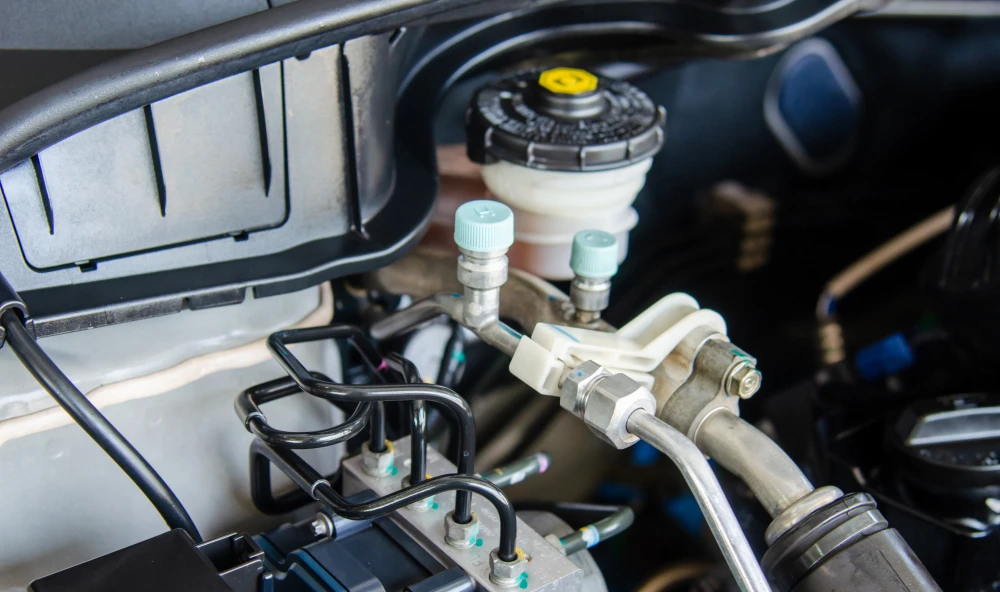When it comes to your car’s efficient functioning, many small parts will often join forces to help it run. One of the components that is considered critical in the vehicle is the water pump.
An important part of the cooling system that is usually neglected is the water pump. This part controls the car’s temperature and ensures the engine is performing optimally. If you’re unsure about its condition, a reliable auto repair Houston can help inspect and maintain it before problems arise.
This blog post covers all the aspects of the water pump. You will learn how it works, why it is crucial for your car, and what issues you should not ignore.
| Read More: Ways To Find a Trustworthy Auto Repair Shop |
If you’re searching for ‘auto repair near me,’ we’re here to help — book your service today.
What is The Role of the Water Pump in a Car?
The water pump is an essential part of your car’s cooling system. Its main role is to pump water, antifreeze, and other fluids around the engine block, the tubes, and the radiator so that the engine will not overheat.
In particular, when the water pump fails to operate efficiently, your engine will overheat, which is not only damaging but also expensive to fix. That’s why you should always keep up with your car’s cooling system service.
How does a water pump help to pump water? Basically, the water pump is a mechanical device that is used to circulate water in the cooling system. Here’s a step-by-step breakdown of how it works
Driven by the Engine:
The water pump is often connected to the crankshaft of the car’s engine through a serpentine belt or a timing belt. This means that while the engine is running, so is the water pump to keep the water circulating.
Centrifugal Force:
Within the water pump, there is an impeller—a rotating element that helps raise the pressure and circulation rate of the coolant. When the engine is in motion, the impeller rotates, generating centrifugal force.
Coolant Circulation:
The spinning impeller draws coolant from the radiator and directs it through the passages in the engine block.
The coolant takes heat from the engine and circulates it to the radiator to cool down before the coolant brings the heat back to the engine again.
Continuous Cycle:
This process is continuous whenever the engine is on and guarantees that it is running at a stable and safe temperature.
Common Problems and Solutions of Water Pumps in Car
- Leaking Coolant
As mentioned above, the first sign of a faulty water pump is a leakage of the coolant, which is one of the most frequent signs.
If you observe a pool of coolant on the ground, which may be green, orange, or pink, it may be a sign of a leaking water pump. This leak can be attributed to a worn-out seal or gasket inside the pump chamber.
Solution:
When you identify a leak, it is advisable to fix it as soon as possible to avoid further complications. With the engine off, begin by inspecting the coolant level and then adding more if it is low.
Check the surrounding floor, walls, and ceiling of the water pump for signs of leakage. The problem is usually fixed by replacing the seal or gasket that has failed to perform its function well.
However, if the pump itself is damaged, then it could be that the whole thing has to be replaced. A mechanic can then determine the cause of the leak and then repair it so as not to worsen the situation on the engine.
- Overheating Engine
If your engine has been hotter than usual for several drives, the culprit could be a faulty water pump.
This can occur if the pump’s impeller is destroyed or if the pump is not circulating the coolant properly.
Solution:
First, look into the coolant tank and see whether the coolant is adequate. Check the water pump and the radiator and look for damages.
If the impeller is bad or if the pump is not moving coolant as it should, then it may be time to replace the water pump.
Also, various parts of the cooling system must be examined to ensure that there is no blockage that may hinder the flow of the coolant.
To avoid the problem of overheating, it is recommended that the water pump be serviced and replaced as often as needed.
- Whining or Grinding Noise
A high-pitched whining or grinding noise coming from the front of your engine could be a sign of a failing water pump. This noise is usually caused by a worn-out bearing inside the pump.
Solution:
If you hear a whining or grinding noise, inspect the water pump and its bearings. Worn bearings often require the entire water pump to be replaced.
Ensure the serpentine or timing belt driving the pump is in good condition and properly tensioned.
Ignoring these noises can lead to complete water pump failure and more extensive engine damage, so address the issue promptly.
- Steam from the Radiator
If you see steam coming from your radiator, it could be a sign that your engine is overheating due to a malfunctioning water pump.
Steam indicates that the coolant is not circulating properly, causing it to boil over.
| Read Our Blog On Why Ignoring a Car’s Cooling System Service Can Be Costly |
Solution:
Immediately turn off the engine and allow it to cool down before opening the hood.
Check the coolant level and top it off if needed. Inspect the water pump for leaks or damage. If the pump isn’t functioning correctly, replace it.
Additionally, ensure there are no blockages in the radiator or cooling system that could hinder coolant flow. Regularly servicing the cooling system can prevent such issues.
Ensuring a Healthy Cooling System
The water pump is a vital component of your car’s cooling system, and its proper functioning is essential for the health of your engine.
By understanding how it works and being aware of common problems, you can take proactive steps to maintain your water pump and prevent costly repairs.
Regular maintenance, such as coolant changes and belt inspections, can help ensure your water pump’s longevity and reliability.
If you do encounter issues, don’t hesitate to consult Erics Car Care. To book an appointment, call us at 713-667-9293.

